
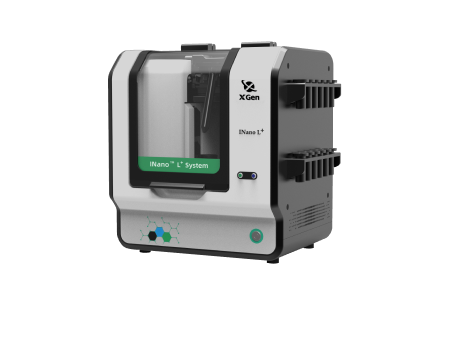
INano™ L+
Rapid Nanomedicine Preparation System
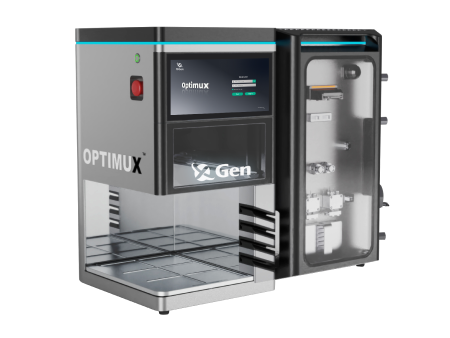
INano™ Optimux
Medium-Scale Formulation (Reusable System & GMP Compliant)
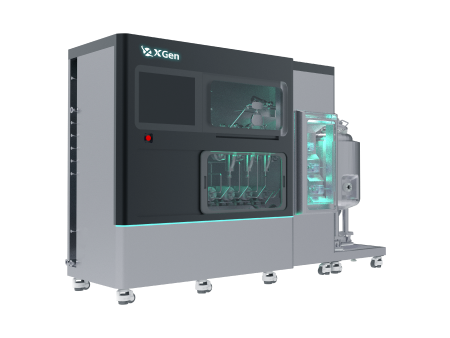
INano™ S
Commercial LNP Manufacturing System

XNano™ HT-Smart
End-to-End High-Throughput mRNA/LNP Screening Workstation
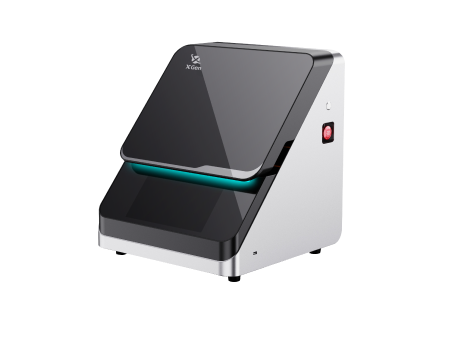
XNano™ PCV
LNP Manufacturing System For Emerging Applications
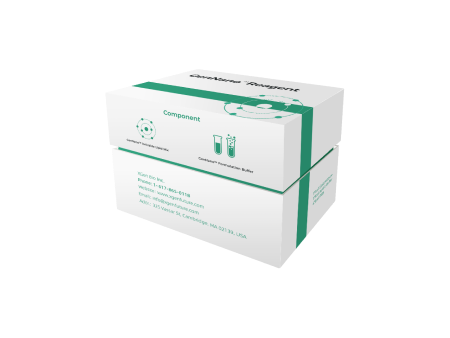
Cell Transfection Kit

Application Kit

Organ-specific Targeting Kit

Validation Kit
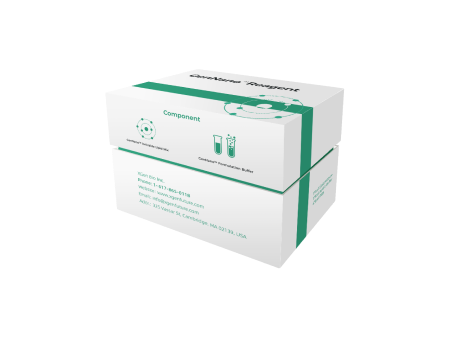
DNA-LNP Kit

Protein-LNP Kit
XGen now offers high-throughput screening services for mRNA sequences, cationic lipids, lipid formulations, and preparation conditions, supporting the research and development of your RNA therapeutic projects. Additionally, XGen provides a powerful one-stop platform offering gene synthesis, plasmid preparation, linearization, linear mRNA/circular RNA preparation, and LNP encapsulation, saving time and costs for your projects.
LNPs have been proven to be an effective delivery system for RNA therapeutics, as they are relatively easy to degrade in vivo. The lipid structure of LNPs can fuse with the cell membrane, allowing the encapsulated RNA to enter the cells and exert its therapeutic effects. Furthermore, LNPs protect the encapsulated RNA from degradation, enhancing its bioavailability.
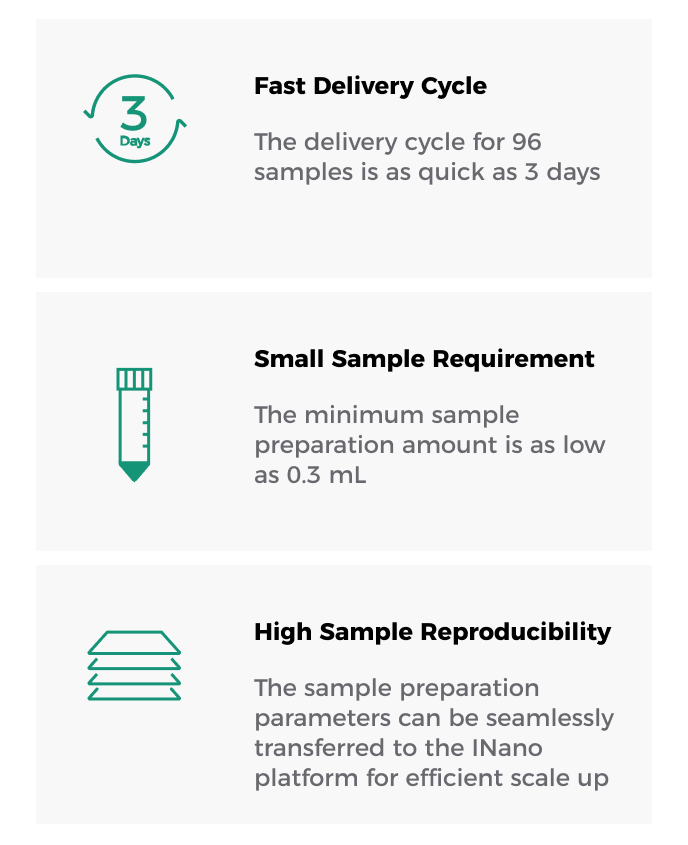
Service Information
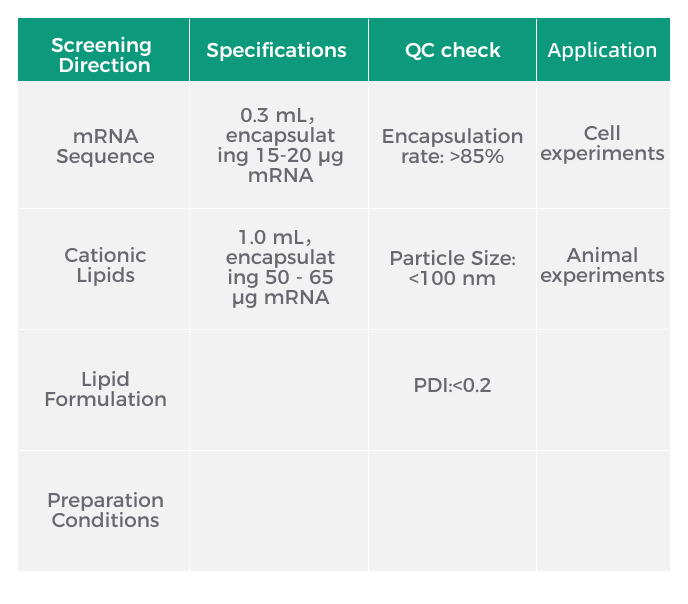
Manufacturing Workflow
Our integrated IVT RNA manufacturing workflow streamlines production from gene synthesis to LNP packaging.
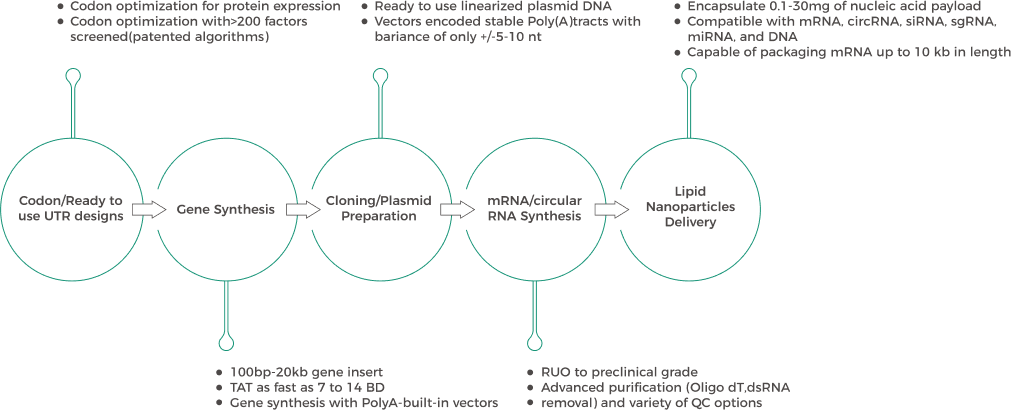
Quality Control and Specification
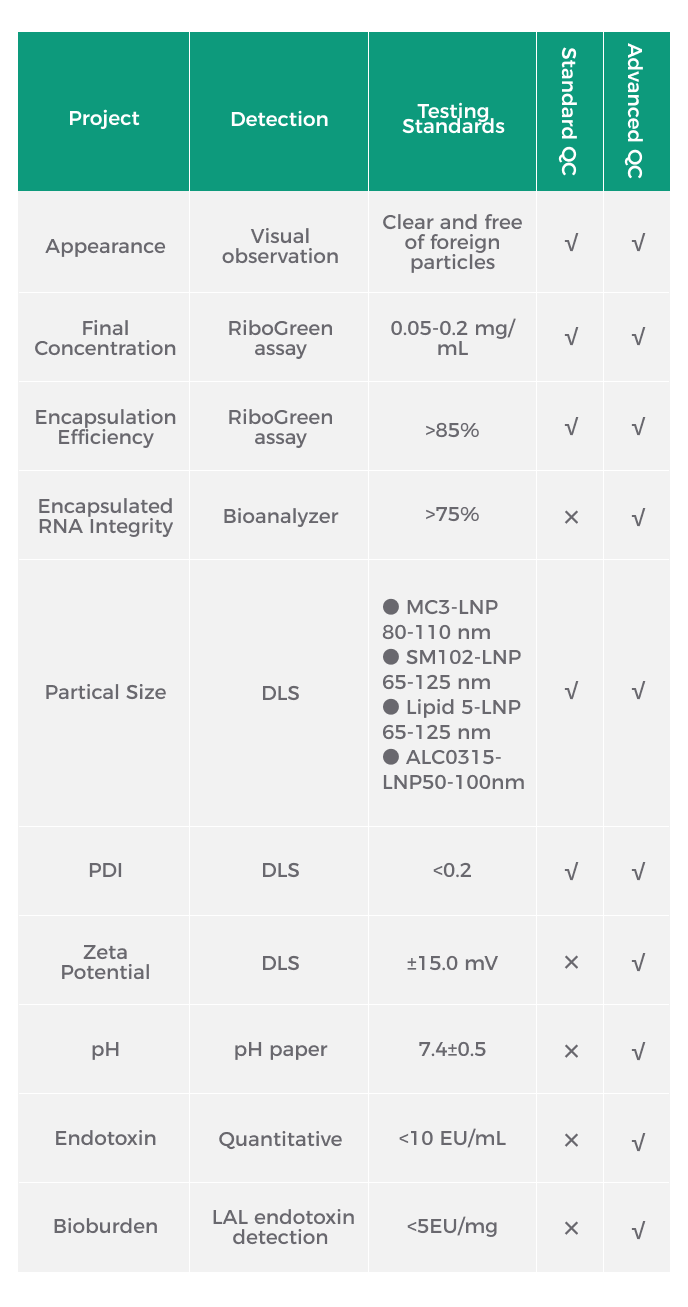
FAQs
What are lipid nanoparticles (LNPs) ?
LNPs are a mixture of natural or synthetic molecules that can self assemble into spherical structures. They are typically composed of a lipid layer that forms an outer shell, with an isolated inner area that can be used to deliver drugs or other medications. Due to their ability to protect drug molecules from degradation and improve their bioavailability, LNPs are gaining significant attention as drug delivery systems.
LNPs can also be designed to target specific cells or tissues for more precise drug delivery. They have widely been used for in applications such as delivering RNA-based therapeutics, including mRNA vaccines. The lipid layer of LNPs can fuse with the cell membrane, facilitating the entry of encapsulated RNA into cells to exert its therapeutic effect. Additionally, LNPs are being studied as potential delivery systems for other types of drugs, including small molecules and proteins.
What lengths of RNA can be encapsulated into LNPs?
Our LNP service encapsulates RNA lengths between 20 n.t. - 10,000 n.t.
What are the differences between the LNP formulations that we provide?
Are those traditional LNP formulations cell or organ targeted?
All of these LNP formulation (MC3 / SM102/ ALC0315 or LP01) do not feature active targeting capabilities, resulting in their tendency to accumulate in the liver rather than targeting specific tissues. However, if organ-specific LNP formulations are required, we can provide customized solutions tailored to customer needs. Please contact our technical support team for further details.
Which lipid do we recommend for mRNA delivery?
All four formulations are clinically validated. We recommend SM102 and ALC0315 LNPs for vaccine-related applications, while LP01 and MC3 are ideal for liver-targeted delivery. Off-the-shelf LNPs loaded with mRNA encoding marker genes are available for initial studies to support your project needs.
Which lipid do we recommend for delivery of small oligo?
MC3-LNP has been successfully used for siRNA delivery in liver gene silencing.